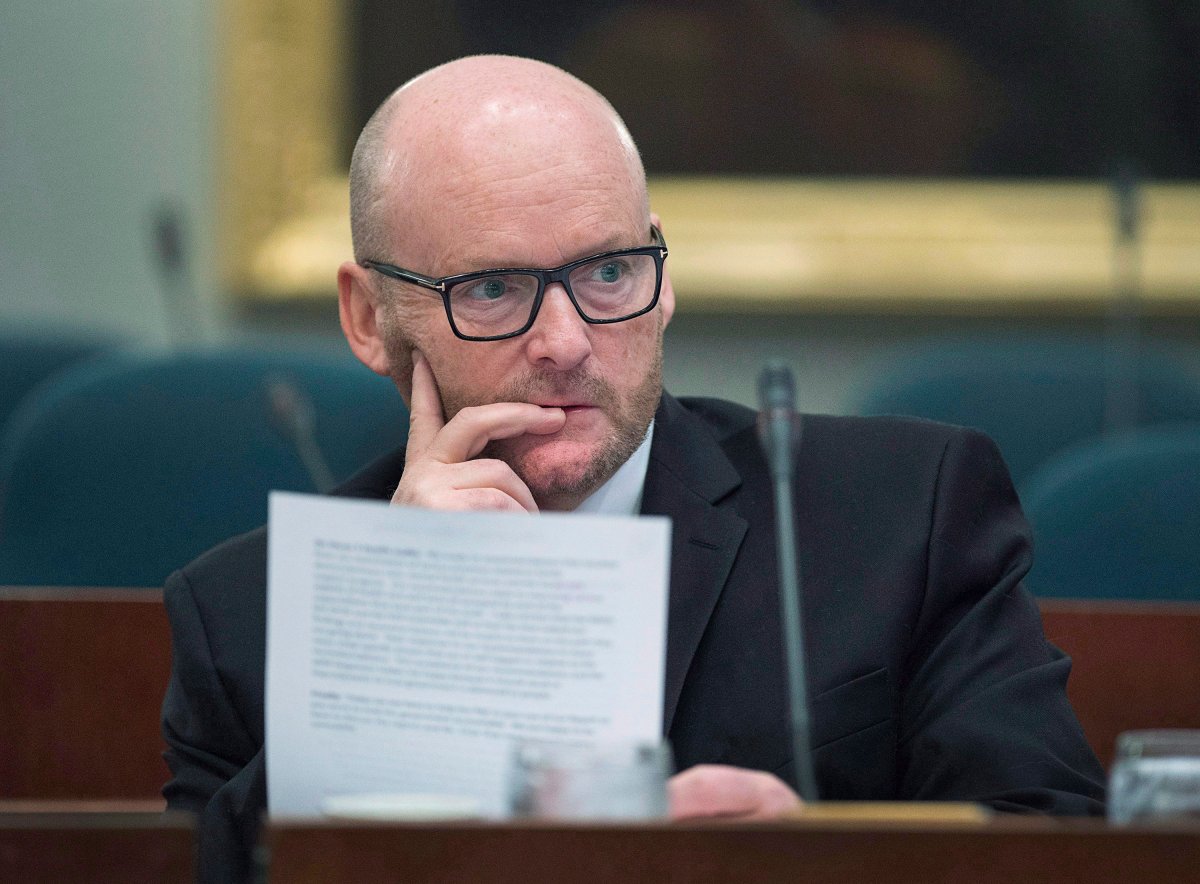British Columbia’s auditor general is defending his criticism of the provincial government over a long-standing difference of opinion about how some public accounting numbers should be crunched.

Michael Pickup said Thursday he believed the Finance Ministry should change the way it reports payments from other governments and non-government sources.
The ministry, meanwhile, said doing so could mislead the public to believe there’s more money in the coffer than is immediately available.
On Wednesday, Pickup’s office said the 2021-22 surplus announced by the government this week should have been billions of dollars higher.
“Each year, my office is mandated to report whether government’s financial statements are fairly stated in accordance with generally accepted accounting principles,” Pickup told reporters.
“My job is to report what I see, is to report what I believe, is to give the opinion that I believe. So I think these things should be corrected.”
On Tuesday, Finance Minister Selena Robinson announced that British Columbia’s public accounts registered an “unexpected” surplus of $1.3 billion, in sharp contrast with a forecast deficit of almost $10 billion.
She said the improved bottom line could be attributed to reopening the economy and the resulting increase in tax revenue, one-time federal contributions for COVID-19 and disaster events, higher natural resource revenues and higher Crown corporation earnings, especially at the Insurance Corp. of B.C.

The issue between the auditor general’s office and ministry centres on how restricted grants are entered in the books.
Pickup argued on Thursday that funds from the federal government, for example, should be recorded as revenue rather than deferred revenue — an adjustment that would add $6.5 billion to the surplus.
However, the Finance Ministry said it records the figures that way for grants that cover multiple years so the reported revenue will more accurately reflect its allocation over time, rather than appear as a lump sum.
When Pickup raised the same concern last year, he said it doesn’t mean the money wasn’t properly accounted for or somehow missed, but is rather a disagreement over how it is written down.

Robinson said Tuesday the auditor had expressed dissatisfaction with the reporting of deferred revenue for restricted grants since the 2011-12 fiscal year.
“If the federal government provided contributions to build a school, the expectation would be that we would build a school and use it as a school. Accounting requires us to amortize that school over 40 years, reporting an expense in each of those 40 years as the school is used to deliver education,” Robinson said Tuesday in an update on the public accounts.
“From a fiscal perspective, it makes sense to recognize the federal contributions as revenue on that very same basis. We are not alone in this treatment, other provinces continue to defer restricted contributions, because it better serves our accountability to the public.”
Pickup said his method aligns with Canadian Public Sector Accounting Standards, which are generally accepted accounting standards for senior levels of government.

The issue was one of three so-called qualifications that Pickup identified in the government’s summary financial statements.
The second issue related to what Pickup said were incomplete disclosures of future expenditures, resulting in the understatement of contractual obligations of $708 million in 2023 and $315 million in 2024.
The third involved the BC First Nations Gaming Revenue Sharing Agreement, resulting in what the audit office said was a $91-million understatement of both revenues and expenses from the deal.
Robinson said Tuesday the government’s reported revenue does not include the First Nations’ portion because it belongs to the First Nations, not the provincial government that distributes it.
“The Comptroller General assures me that our recognition is consistent with generally accepted accounting principles,” she said.
“Our current disclosure includes all significant and material obligations under contract or agreement that will result in future expense.”

- Thousands of Canada’s rail workers have a strike mandate. What happens now?
- Bird flu: Experts urge more surveillance in Canada — before it’s too late
- TD Bank hit with $9.2M fine over failing to report suspicious transactions
- Can the Bank of Canada cut rates before the U.S.? What Macklem, economists say



Comments